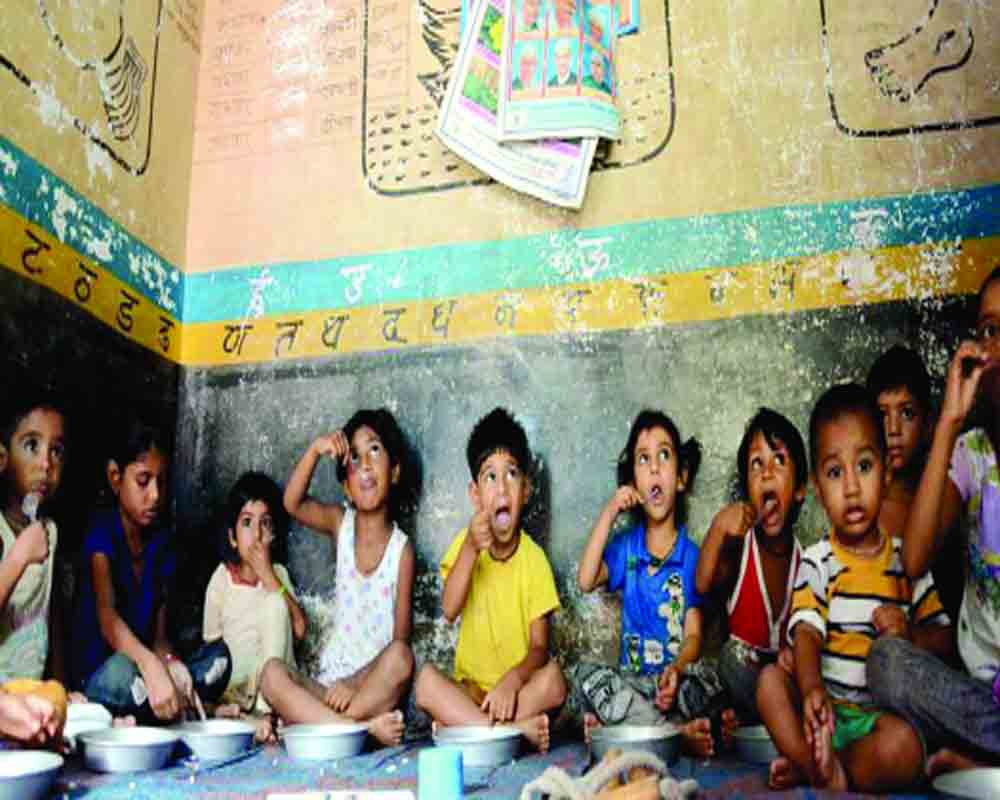Capacity-building programs for Anganwadi workers is important to lessen the burden of neurodevelopmental disorders (NDDs)
In India, the burden of neurodevelopmental disorders (NDDs) and their associated disability-adjusted life years (DALYs) is a growing concern. Disability-adjusted life year (DALY) is a metric that integrates both years of life lost due to premature mortality (YLLs) and years of life lost due to living in states of reduced health or years of healthy life lost due to disability (YLDs). The burden of these disorders extends beyond the individuals themselves, impacting families, communities, and society at large. In this context, Strengthening Anganwadis could act as a game changer in reducing the burden.
Monitoring the Problem
According to a multicentric study conducted in 2018, the prevalence of neurodevelopmental disorders, such as vision impairment, epilepsy, neuromotor impairments including cerebral palsy, hearing impairment, speech and language disorders, autism spectrum disorders, intellectual disability, attention deficit hyperactivity disorder, and learning disorders, was found to be 9.2% among children aged from 2 to less than 6 years and 13.6% among children aged from 6 to 9 years.It is essential to record and address these issues as early as possible to help every child reach their full potential.
Monitoring the developmental progress of children from birth to 2 years can lead to early identification of developmental delays or sensory impairments. These developmental delays may also be early signs of compromised neurodevelopment and so Early Childhood Interventions (ECD) implemented during time-sensitive, developmental periods can help to meaningfully address the root causes of these challenges.
The Risk Factors
There are multiple risk factors that predispose neonates and infants to neurodevelopmental delays. A combination of genetic and environmental risk factors including non-institutional delivery, a history of perinatal asphyxia, neonatal illness, postnatal neurological/brain infections, stunting, low birth weight/prematurity, severe acute malnutrition and lower head circumference are found to be significantly associated with neurodevelopmental delays in infants below 2 years of age. In India, of the 25 million children born in a year, at least 3.5 million babies are born prematurely and 1.7 million are born with birth defects and one million new born babies need prolonged hospitalisation and require special healthcare or dependence on technology at the Special-New-born Care Units (SNCUs) to save them and reduce medical morbiditiesafter birth.
Another disadvantage is that the children growing up in poverty face higher levels of adversity and stress, which can negatively impact their neurodevelopment. As per the World Bank,poverty and stunting are potential markers of developmental impairment caused due to environmental factors andat least 250 million children, aged under 5 years, fail to reach their potential in cognitive and socioemotional developmentin low- and middle-income countries. One potential reason for this is children from lower socioeconomic backgrounds tend to have heightened stress response systems as differences in parenting influenced by income and education, such as parent-child interaction, vocabulary, and responsiveness, can affect the maturation of specific brain areas.
(The writer is professor of psychology, at Ashoka University; views are personal)
To be continued...
























